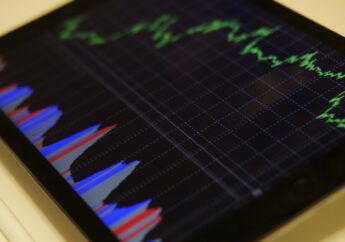The basics of derivatives
by Mashum Mollah Finance Published on: 24 July 2018 Last Updated on: 24 August 2018

Derivative is a term you may have heard being used in news stories about financial trading. So, what are derivatives and how can you take advantage of them to make some money?
What are derivatives?
Historically, derivatives were used in relation to commodities and other goods that were traded between the nations of the world. They ensured that the exchange rates of different currencies were in balance and provided international traders with a way of accounting for the differences. They have several more uses these days and are now founded upon a wide range of transactions.
Today, a derivative is a contract between two parties or more. It takes its value from its relationship with an underlying asset or group of assets. When the asset’s value fluctuates then the derivative also fluctuates in value. The underlying assets can be anything from bonds, commodities, and stocks, to currencies, interest rates, and market indexes.
You can get over-the-counter (OTC) derivatives and exchange-traded ones. The former is called over-the-counter because they do not go through an intermediary, whereas the latter go through derivatives exchanges. That means they are different when it comes to financial regulations and can be traded in different ways.
How are they used?
Similar to CFDs Trading, derivatives are usually used for hedging purposes. Hedging is when you employ ways to protect your investments from the fluctuations of the market. With derivatives, it works by allowing you to protect your other shares. You can purchase a ‘put option’ which means that if the stock price falls the put option will protect against losses.
Derivatives are also used to increase leverage. Leverage is the increased buying power you have when you use margin accounts. Margin accounts are when you open up an account to trade in stocks and the margin is the deposit you pay – it is a percentage of the full price of the stock. Derivatives allow you to pay a low margin for the trading of a full share so that you have more leverage while spending less money.
Common types of derivatives
Employee stock options: Yes, employees can also take advantage of derivatives. They allow employees to buy company stock at a specified price before a deadline. That is the deadline when the derivative expires. During that time, the employee will hope that the value of the stock that the derivative is tied to will increase, allowing them to sell it on for a profit.
Swaps: These derivatives concern interest rates and currencies. They are designed to reduce risk when it comes to interest rates and currency trading.
Futures contracts: These are primarily used in the commodities markets. Farmers often use them to make sure that they can sell their produce at a pre-arranged price. That means that market fluctuation will not affect their revenues.
Risks to keep in mind
It is not advisable to go for speculative derivatives as an individual because of the risks they pose. You should always talk things over with a qualified professional before investing in anything – that is a good rule to follow.







































































































